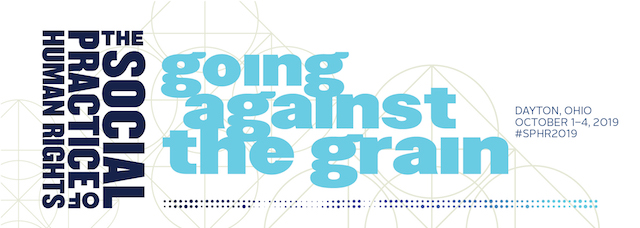Location
Centering Queer Rights
Start Date
10-3-2019 9:00 AM
End Date
10-3-2019 10:30 AM
Keywords
human rights litigation, anti-sodomy laws, LGBT rights, Sub-Saharan Africa, Kenya, Botswana
Abstract
In May 2019, the Kenya High Court is expected to rule on Sections 162 and 165 of the penal code, which criminalize consensual sex between two adult men. Similarly, the Botswana High Court will rule on its equivalent penal code provisions, Sections 164 and 165, in June 2019. Regardless of the outcomes of these decisions, both will contribute to a global “judicial dialogue” on the constitutionality of anti-sodomy laws. In jurisdictions as diverse as Northern Ireland, Belize, Singapore, South Africa, the United States, and most recently India, courts around the world have considered whether anti-sodomy laws violate the rights to privacy and equality. International courts such as the UN Human Rights Committee, European Court of Human Rights, and Inter-American Human Rights Commission have joined the emerging soft consensus that anti-sodomy laws violate human rights.
This creates an opportunity for human rights advocates to use international and comparative law as a tool to persuade more reluctant courts to reconsider the constitutionality of anti-sodomy laws. Transnational organizations such as Human Dignity Trust assist local LGBT rights advocates in bringing challenges to anti-sodomy laws. In this way, human rights lawyers with these transnational organizations are affirmatively helping to “build” a global jurisprudence on human rights issues. Judges do not cite international and foreign law in a vacuum – they must be guided by advocates’ pleadings and amicus briefs. The courts in Kenya and Botswana have been presented with a range of international and domestic legal sources by both the local LGBT rights organization and transnational partners. This use of comparative and international law is a strategy that can be used in other types of human rights challenges.
Author/Speaker Biographical Statement(s)
Andrew Novak is Term Assistant Professor at George Mason University. He has a JD from Boston University and a PhD from Middlesex University School of Law. He is the author of The African Challenge to Global Death Penalty Abolition (Intersentia 2016).
Included in
Human Rights Litigation and Anti-Sodomy Laws in Kenya and Botswana
Centering Queer Rights
In May 2019, the Kenya High Court is expected to rule on Sections 162 and 165 of the penal code, which criminalize consensual sex between two adult men. Similarly, the Botswana High Court will rule on its equivalent penal code provisions, Sections 164 and 165, in June 2019. Regardless of the outcomes of these decisions, both will contribute to a global “judicial dialogue” on the constitutionality of anti-sodomy laws. In jurisdictions as diverse as Northern Ireland, Belize, Singapore, South Africa, the United States, and most recently India, courts around the world have considered whether anti-sodomy laws violate the rights to privacy and equality. International courts such as the UN Human Rights Committee, European Court of Human Rights, and Inter-American Human Rights Commission have joined the emerging soft consensus that anti-sodomy laws violate human rights.
This creates an opportunity for human rights advocates to use international and comparative law as a tool to persuade more reluctant courts to reconsider the constitutionality of anti-sodomy laws. Transnational organizations such as Human Dignity Trust assist local LGBT rights advocates in bringing challenges to anti-sodomy laws. In this way, human rights lawyers with these transnational organizations are affirmatively helping to “build” a global jurisprudence on human rights issues. Judges do not cite international and foreign law in a vacuum – they must be guided by advocates’ pleadings and amicus briefs. The courts in Kenya and Botswana have been presented with a range of international and domestic legal sources by both the local LGBT rights organization and transnational partners. This use of comparative and international law is a strategy that can be used in other types of human rights challenges.



